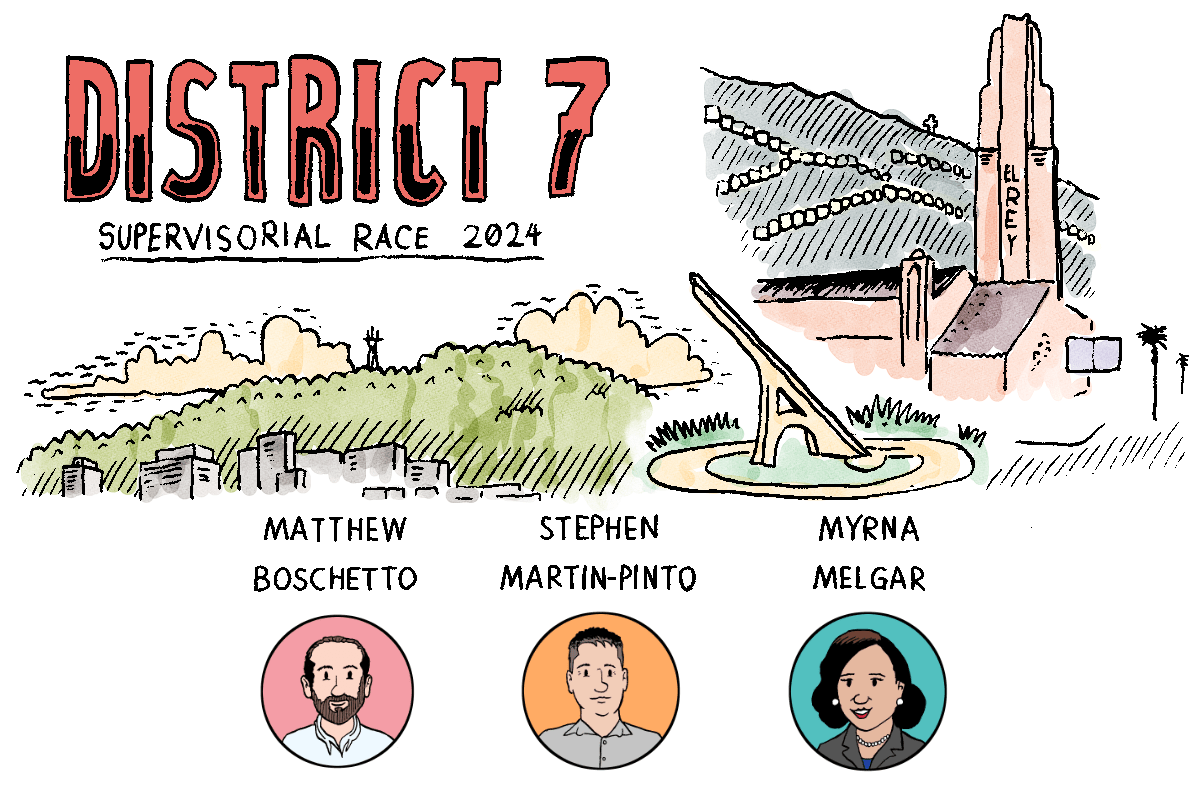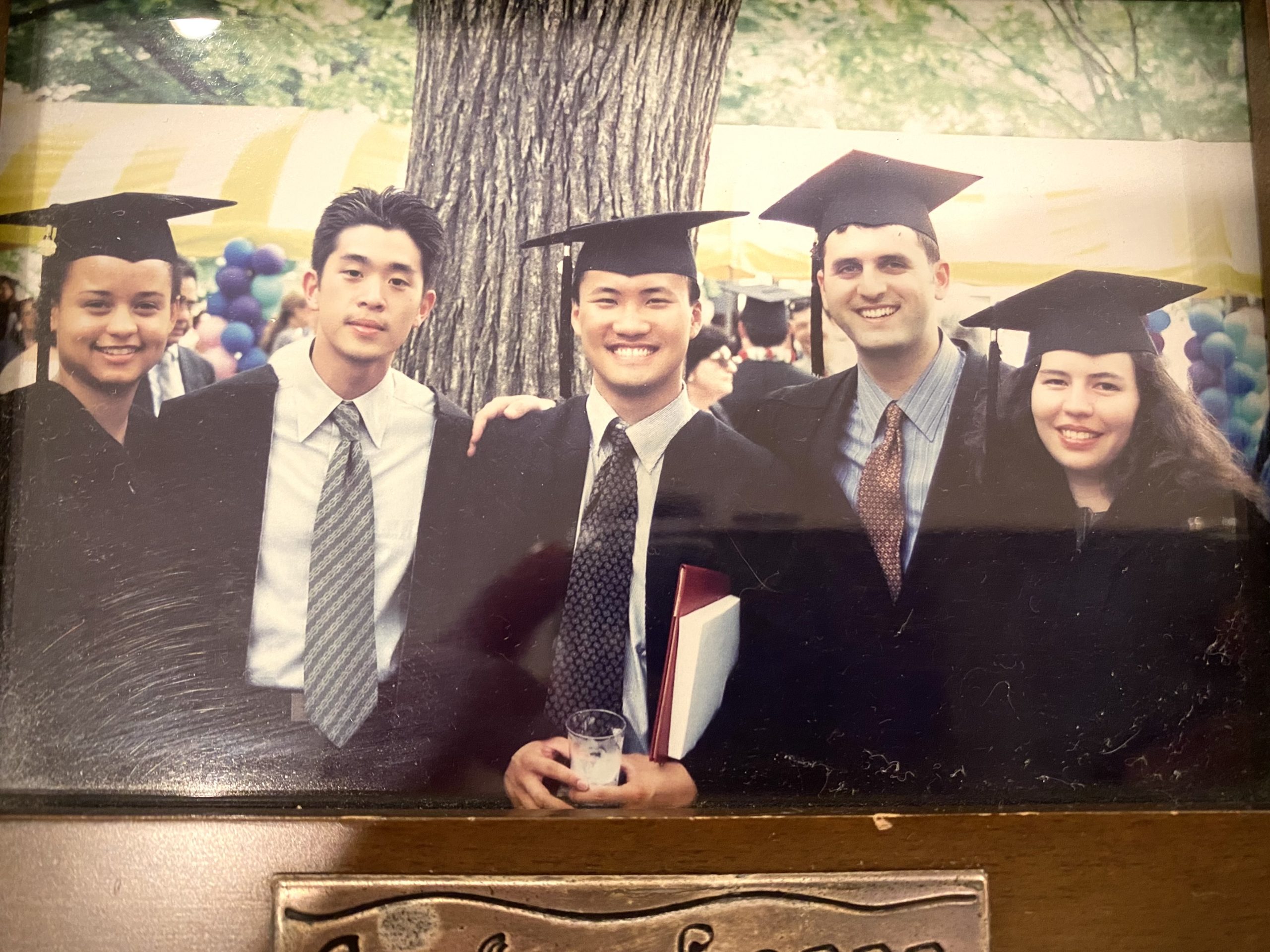Mission Local has obtained a written message from a Mark Farrell consultant in which she lists Kanishka Cheng, the founder of political advocacy group TogetherSF, as “guiding the ship.”
“Do you want me to set up time to meet with Mark?” texted Margaux Kelly in February. “Happy to do so. Me, Jess and Kanishka are guiding the ship.”
It’s no surprise that campaign consultant Kelly and campaign spokesperson Jess Montejano would be listed in this context. That’s not the case for Kanishka Cheng, the founder and director of the political advocacy group TogetherSF and CEO of its political arm, TogetherSF Action.
The “guiding the ship” phrasing figures to fuel recriminations from rival mayoral campaigns about the closeness between Farrell and TogetherSF, a group launched with millions of dollars from Michael Moritz, the venture capitalist spending heavily on San Francisco civic and political causes.
Additionally, it could lead to scrutiny of any future spending undertaken by an “independent expenditure” campaign from the group. While donations to a San Francisco candidate’s campaign are capped at $500, “independent expenditure” operations are permitted to collect unlimited donations and spend them on behalf of or against a preferred candidate.
The word “independent,” however, is paramount. Coordination between an independent expenditure campaign and a candidate campaign is forbidden — and if or when TogetherSF participates in a forthcoming independent expenditure campaign, the term “guiding the ship” may be subjected to legal scrutiny.
“I am not working with the Farrell campaign. TogetherSF and TogetherSF Action are completely independent from the Farrell campaign, and all candidate campaigns. I cannot control what people say or think about me,” Cheng wrote to Mission Local. “I have talked with, and provided guidance to, every top Mayoral candidate, or their campaign, in this race except Supervisor Peskin.”
“Our campaign is independent from Together SF and Together SF Action — period,” Kelly wrote to Mission Local. “While our opponents are focused on baseless accusations and innuendo, we’re focused on building on our lead in the race and connecting with voters about how we are going to deliver a cleaner, safer and more vibrant San Francisco when Mark Farrell becomes Mayor.”
Imperiled debate for group stacked with former Farrell aides
Regardless, Kelly’s text prompts questions of just how much daylight there is between the official Farrell campaign and TogetherSF.
Not enough for mayoral candidate Aaron Peskin, who publicly declined to participate in TogetherSF’s forthcoming May 20 mayoral debate. Peskin declared TogetherSF to be a partisan entity pushing a Farrell mayoralty; he told the San Francisco Examiner that his appearance at its debate would be akin to Joe Biden participating in a National Rifle Association-sponsored forum.
No other candidate has publicly bowed out of the debate, but Mayor London Breed’s campaign spokesperson Joe Arellano told Politico this week that “We have real concerns with the debate, and are reevaluating our participation,” citing disarray around the event and close ties between TogetherSF and the Farrell campaign.
Reached today, Arellano wrote that “after Politico’s story broke on Monday, we received a flurry of emails from TogetherSF’s leadership with details our campaign requested weeks ago. It is still unclear how the audience is being selected. Additionally, Monday’s emails noted that now TogetherSF and GrowSF’s endorsement is dependent on debate participation — which was not shared with any campaign until this point.”
Cheng wrote to Mission Local that “We have changed the date to accommodate Mayor Breed’s schedule, and changed the rules and moderators in response to requests from the Peskin, Breed and Lurie campaigns.” The moderators, she said, have “complete editorial independence.”
“It is clear that some Mayoral campaigns are promoting this narrative to avoid participating in the TogetherSF Action x GrowSF debate.”
The Breed, Lurie and Safai campaigns disputed that Cheng had provided them substantive guidance.
Steven Buss, the co-director of GrowSF, said “it is not a requirement” for candidates hoping to receive his organization’s endorsement to attend this debate. “We would like the candidates to go to as many debates as possible, including this one.”

That there is a good deal of personnel crossover between the former Farrell administration, TogetherSF and the Farrell for Mayor campaign is not debatable, and has never been hidden. Kelly, Farrell’s consultant, is on leave from her position as TogetherSF’s chief community officer so she can work for the Farrell campaign (though she is still listed on the group’s website).
She was also a Farrell legislative aide during his two terms as District 2 supervisor. Farrell’s campaign manager, Jade Tu, is TogetherSF’s former chief of staff. Cheng, TogetherSF’s founder, was a Farrell legislative aide (and also worked for Mayor London Breed). Montejano, the spokesperson for TogetherSF Action, was a staffer and advisor to Farrell during his years as supervisor and six-month term as mayor.
Resumé commingling between TogetherSF and the Farrell campaign has led to bombast from political rivals. The “guiding the ship” phrasing and allegations of potential coordination could lead to more.
Nicholas Sanders, a California campaign finance attorney, said that coordination between a candidate’s campaign and a third party occurs when there is discussion of “specific information affecting a specific expenditure by the third party,” such as the content of a campaign flier, or its intended audience.
In that case, more would be needed to face legal repercussions than the mere statement that Cheng is “guiding the ship.” The question would be whether Cheng and Farrell’s campaign discussed “details of the expenditures” that TogetherSF might make in the future, not simply staffing.
‘Every enforcement action is slow’
The situation regarding ties between the Farrell campaign and TogetherSF harks to earlier reporting regarding ties between the Farrell campaign and Neighbors for a Better San Francisco, the city’s biggest-spending political group. Jay Cheng, that group’s director — and Kanishka Cheng’s husband — texted a San Francisco political operative about the possibility of taking a $15,000-a-month position at the Farrell mayoral campaign.
“The offer is open!” Jay Cheng texted. “We’ll hold the position for you as long as you need.”
His use of the word “we’ll” did not go unnoticed.
“We’ve reviewed this activity by our political attorneys and they are very clear that there is no issue here,” Jay Cheng wrote to Mission Local. “We are not operating an IE for any mayoral candidate, and so there is no issue of coordination.”
The Fair Political Practices Commission, however, long ago established precedents regarding independent expenditure committees working too closely with candidate campaigns — not just in the present, but regarding campaigns that they will support in the future.
In a 2002 advice letter, the body wrote that even individual members of political action committees are limited in their coordination with a candidate the political action committee will support at a later date. Individual members are “not to have any discussions about the PAC’s plans or independent expenditures with the candidate or the candidate’s campaign staff.” If the staff of both groups grow too close, it continued, the risk of improper coordination is heightened.
“If a PAC board member held a formal policymaking position with the candidate’s campaign, or provided advice regarding campaign strategy or fundraising, it would call into question the independence of the PAC’s expenditures on behalf of the candidate.”
But Sanders said that even if the text message exchanges create a presumption of coordination for San Francisco’s Ethics Commission or the state Fair Political Practices Commission, there would still have to be a finding that specific details were shared between the campaign and the independent expenditure committee.
“You have to show: ‘Hey, they sent this mailer based on the campaign’s needs,’” he said. “Did those conversations go to the needs? Did he go to very specifically: ’Tell me your campaign plan?’”
This is a significant hurdle, and not one that would be adjudicated quickly — all but certainly not before November’s election.
Things can “move somewhat quickly if it’s a clear-cut violation, but that is unlikely,” said Bob Stern, the co-author of the 1974 California political reform act and the Fair Political Practice Commission’s former general counsel.
Stern did not see these texts as clear-cut: “No, not yet. … you have to go through due process questions and hearings.”
He felt it to be “unlikely that anything would happen before the election other than letters going out asking for more information. The Ethics Commission has first crack at it and the FPPC also has a crack. Hopefully they would work together or, more likely, the FPPC will ask Ethics to handle it.”
This process often unfolds at a glacial pace. It is not uncommon for the Ethics Commission to mete out justice for misbehavior during an election several election cycles later; former Board President Norman Yee was in 2021 fined for improper donations he accepted in 2016.
Also in 2016, Farrell agreed to a $25,000 settlement with the Ethics Commission. That stemmed from of allegations that his 2010 supervisoral campaign illegally coordinated with an independent expenditure campaign. Farrell was cleared by the FPPC and his representatives stressed, then and now, that Farrell was exonerated of any personal wrongdoing.
“Every enforcement action is slow,” says Stern, particularly if the parties choose to not cooperate. “They have to interview everyone, go through all sorts of records, and eventually make a factual determination,” added Sanders. “It’s going to be slow, no matter where you go.”
For a particularly well-heeled individual or group, any fine can be written off as a cost of doing business.
“There are different sets of consequences,” says Pedro Hernandez, the legal and policy director of California Common Cause. He sighs. “They could be stronger.”









Thank you for the excellent reporting!! The richest whites of SF think they are above the law. It’s tough on crime lock em up 3 strikes war on drugs for Black & Brown lives who deign to commit poor people crimes like shoplifting and selling drugs and auto burglary but these people are openly buying elections and allegedly violating ethics rules but they expect no consequences and they probably won’t actually suffer real consequences in the long run because, well, capitalism…..
Very troubling and incestuous. None of this passes the smell test. Do others recall that in last year’s budget cycle Breed attempted to slash the Ethics Commission’s funding by nearly half and she wanted to cut the staff by 40% as well. The above events are exactly why SF needs and must have a strong and funded Ethics Commission. Also: word on the street is that Kanishka Cheng’s hubby Jesse, now “Jay”, Cheng’s husband IS working on Mark Farrell’s campaign and that they have moved into District 2 so that she can be appointed to take over catherine stefani’s D2 supervisor seat.
That settles it: Farrell’s out of the running.
TogetherSF is beyond suspect. Mark Farrell is just another entitled, power-hungry career politician. I encourage everyone to attend at least one mayoral debate. His talking points are just that. Talking points to get elected. They are very blatantly buying their way into City Hall to create a city that serves a few and ignores the many. Definitely not even ranking him in Nov.
Mark Farrell, Kanishka Cheng, Jesse now “Jay” Cheng and Katherine Stefani apparently have a plan for when and if Stefani wins her state assembly race.
Yawn…